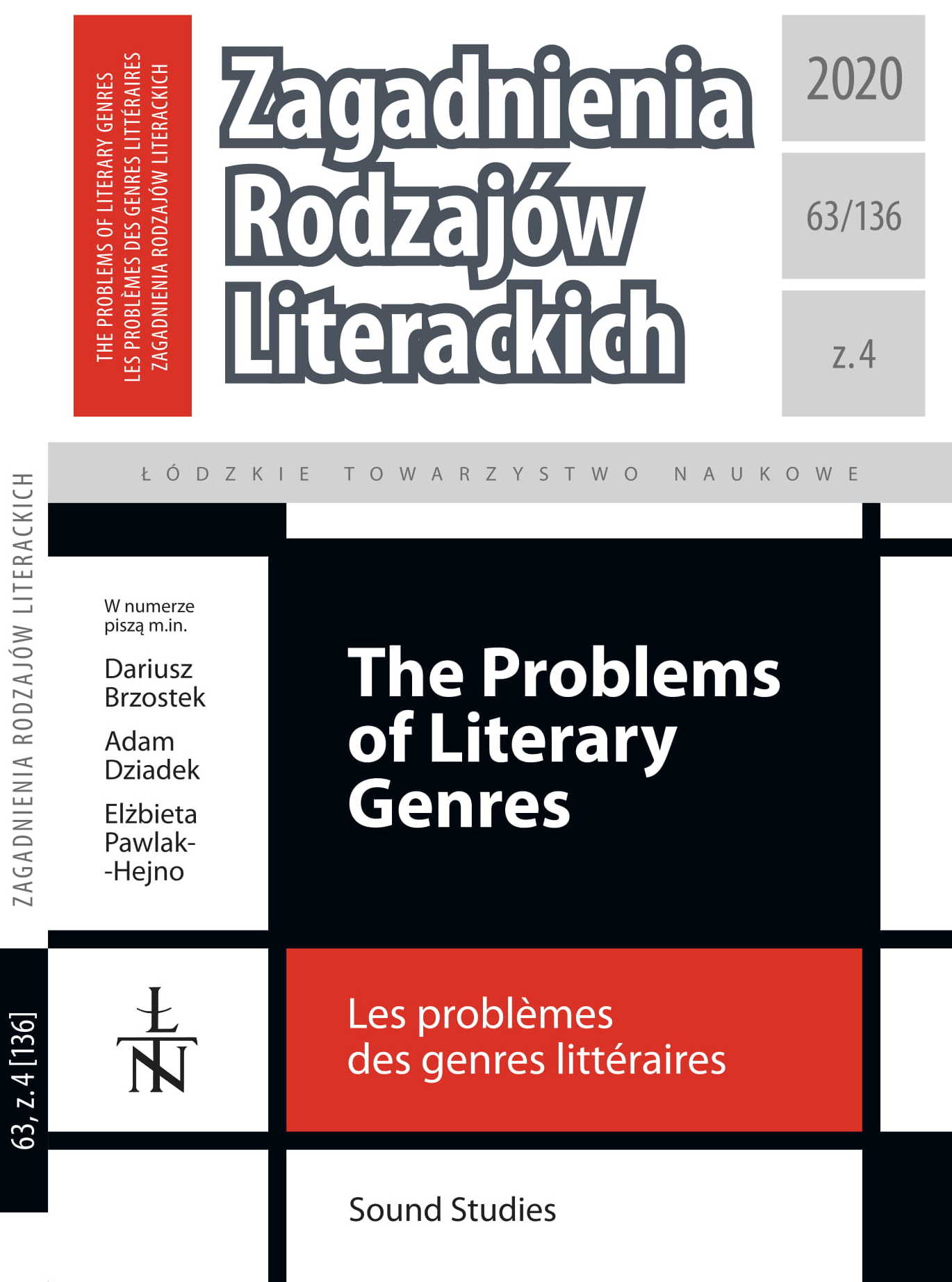Audiosfera jako kategoria literaturoznawcza. Próba przybliżenia zagadnienia
Audiosphere as a Category of Literary Studies. An Attempt to Bring the Issue Closer
Author(s): Łukasz PiaskowskiSubject(s): Language and Literature Studies
Published by: Łódzkie Towarzystwo Naukowe
Summary/Abstract: The audiosphere is a capacious, ambiguous category, often freely used in contextual research. It is a term that has long been present in literary studies, but is used quite freely. The aim of this article will be an in-depth look at the ways of using the word 'audiosphere' and, finally, an attempt to specify research meanings useful in the context of literary studies. The terminology that organizes the sound order of a language exists in the study of literature in two modes. Each mode represents a different path in the development of the field of meanings of the audiosphere category. The first of them was developed by literary researchers as early as the 1980s, where the audiosphere was identified with the audial medium of presenting a literary text, i.e. with singing, recitation or speech. The second mode was subordinated to contemporary influences of cultural anthropology. The creation of sound studies and the so-called sound anthropology resulted in a flood of new meanings of the word 'sound', as well as the need to develop cognitively useful descriptive categories. In this context, the audiosphere is a very Polish term. It is mainly used by Polish researchers, strictly distinguishing it from the soundscape category, which is more common in Western studies. In the article, the two models outlined above will be confronted with each other, and the purpose of this juxtaposition will be to cause shifts in terms of meanings. On the basis of a relatively outlined definition, the basic features of the audiosphere within literary research will be listed. This will make it possible to clarify which specific features of this category are useful in the context of literary studies and which should be rejected. Ultimately, it is about working out the possibility of creating a model of audial interpretation of a poetic text.
Journal: Zagadnienia Rodzajów Literackich
- Issue Year: 63/2020
- Issue No: 4
- Page Range: 133-150
- Page Count: 18
- Language: Polish

